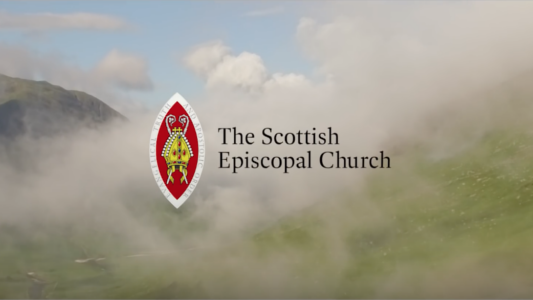(The Policy relates to investments in the Scottish Episcopal Church Unit Trust Pool)
As noted in the Ethical Investment Policy detailed below, General Synod approved a separate policy relating to the use of Pooled Funds. One of the requirements of that Policy is that the Investment Committee reports annually to Standing Committee regarding the continued appropriateness of the pooled funds in which the UTP invests and compliance with policy framework. Copies of the annual reports can be found here.
Policy approved by General Synod 2022:
The Scottish Episcopal Church (SEC) recognises its members’ duty as Christians to live in society in a manner which represents an effective witness to our Christian faith. In a complex world this is not an easy task and the difficulties are particularly challenging in the context of investing funds in the UTP.
Amongst other matters, we need to consider:
- our duties as responsible stewards of the funds entrusted to the SEC;
- what determines our values and our understanding of ethical investment, recognising that these will develop over time;
- in practical terms, how these may be applied to the UTP on an on-going basis.
- Principles of responsible stewardship
The SEC Ethical Investment Advisory Group’s 2020 report identified three foundational principles:
- The responsibility of prudent use of the money entrusted to the church, in wise and effective investments, in the context of the economic situation prevailing at the time.
- The responsibility to make investments directly or indirectly in companies whose activities are not inconsistent with the church’s spiritual and moral values under God, reflecting the most pressing needs of the times, and not to invest in those whose activities are contrary to those values.
- The responsibility arising from the dependence of the missional work of the SEC upon the annual returns made from the investments for the work of the church, the staff it employs and the voluntary efforts of time, energy and talents of the wider church membership.
- Principles of ethical investment
Certain categories of investments are deemed to be inconsistent with SEC’s values. The Investment Committee should therefore avoid direct investment in companies deriving more than 10% of their revenues in the following restricted categories:
- Armaments
- Fossil Fuel extraction
- Gambling
- Pornography
- Tobacco
The Investment Committee relies on the use of pooled funds to achieve the investment objectives for the UTP. Pooled funds are the subject of a separate policy which was approved by General Synod 2021 and can be found here[i]. The policy states that the total value of investments in the restricted categories held in pooled funds should be less than 1% of the total value of the UTP.
Ethical investment includes far more than simply avoiding areas that are incompatible with the SEC’s values. It can involve making a commitment to investing in areas that actively produce social and environmental benefits.
Useful broad criteria to guide the assessment of what may or may not be an ethical source of revenue for the UTP are the positive or negative impacts of the entity in question on:
- the health and dignity of human beings, particularly the most disadvantaged in society;
- the long-term stewardship of the planet; and
- the mission of the worldwide church.
Assessment of ESG criteria (Environmental, Social and Governance) can be a useful tool for understanding how seriously a company takes such questions and integrates them into its business practices. However, as yet there is no universally accepted standard for assessing relative ESG performance. The Investment Committee therefore depends on its investment and fund managers for analysis of ESG performance of the companies it selects for investment. The Church Investors Group (CIG), of which the SEC is a member, conducts valuable research in this area.
When considering the appointment of an investment manager for the UTP, the Investment Committee will seek to appoint a firm that can demonstrate a responsible and progressive ESG policy.
In addition, SEC should have regard, where possible, to the desirability of investing the UTP in funds with a focus on making a positive contribution in one or more of the following areas:
- Developments in human health, wellbeing, education and communications.
- Sustainable development of just and peaceful societies.
- Businesses that minimise and mitigate the harmful effects of industry, recognising that all human activity has an impact on the planet.
- Practical considerations
In selecting appropriate funds to invest in, the practical considerations include balancing ethical criteria with the need to meet the investment objectives and the resources required to administer the UTP.
This raises questions of how appropriate funds should be selected for the UTP, the triggers that will result in an immediate review of on-going suitability, the frequency of routine reviews and reporting requirements, and the process for considering future ethical investment concerns and opportunities as and when they arise.
(a) Selection and monitoring of funds
- A pooled fund under consideration for the UTP must comply with the SEC’s Policy Framework on Investment of SEC Unit Trust Pool Monies in Pooled Funds at the outset.
- Investment Committee will engage with the UTP’s investment manager on ESG issues at least annually.
- Investment Committee will have regard to the level of impact investment in any fund under consideration for investment and in the UTP as a whole.
- Investment Committee will include an impact investment statement in its annual compliance report to Standing Committee.
- Investment Committee will include ethical investment criteria in its formal review of the UTP’s investments which takes place every three years.
(b) Triggers to change fund or investment manager
- Investment Committee is required to report to Standing Committee on options for action in the event of non-compliance in terms of the SEC’s Policy Framework for investment in pooled funds.
- Timing of any divestment will be dependent on the identification of an appropriate alternative fund that meets ethical and investment criteria and/or an appropriate alternative investment manager.
(c) Framework for investigating ethical concerns
It is recognised that issues will arise that require SEC to consider the ethics of how the UTP is invested. The SEC recognises its responsibility to give careful consideration to such areas of concern.
Standing Committee will appoint and oversee an advisory group to be tasked with looking out for such issues and assessing ethical investment concerns raised by SEC groups or individual members and providing advice to Standing Committee in that regard. In carrying out its work, the group will act collaboratively in consultation with IC, CISC and other groups within SEC having an interest in the field of ethical investment.
The Terms of Reference for that group will be as set by Standing Committee from time to time.
[i] https://www.scotland.anglican.org/wp-content/uploads/Policy-on-the-use-of-Pooled-Funds-in-the-UTP-June-2021.pdf
Additional background information
The Ethical Investment Policy was developed by the Ethical Investment Advisory Group appointed following discussions at General Synod 2019. In addition to preparing the Ethical Investment Policy and Policy for investment in Pooled Funds the Group provided reports to General Synod in 2020 and 2022. Copies of its reports are available:
Fossil Fuels
General Synod 2017 agreed a number of resolutions in respect of Climate Change Action and Fossil Fuel Investments. The Ethical Investment Policy agreed in 2022 reflects those resolutions. A copy of the report discussed by General Synod 2017 and the resolutions passed can be downloaded from the SEC Website.
The Ethical Investment Policy (EIP) defines the restricted category fossil fuel extraction as a company that derives more than 10% of its revenue from the extraction of fossil fuels. The last remaining direct investment in a fossil fuel extraction company was sold in 2020 at which point fossil fuel extraction was added to the list of restricted categories. The two pooled funds in which the UTP is currently invested do not specifically exclude the EIP restricted categories. Although the Policy for investment in Pooled Funds permits a very small indirect investment in the EIP restricted categories, in practice it is unlikely that investments in fossil fuel extraction companies will be held.







